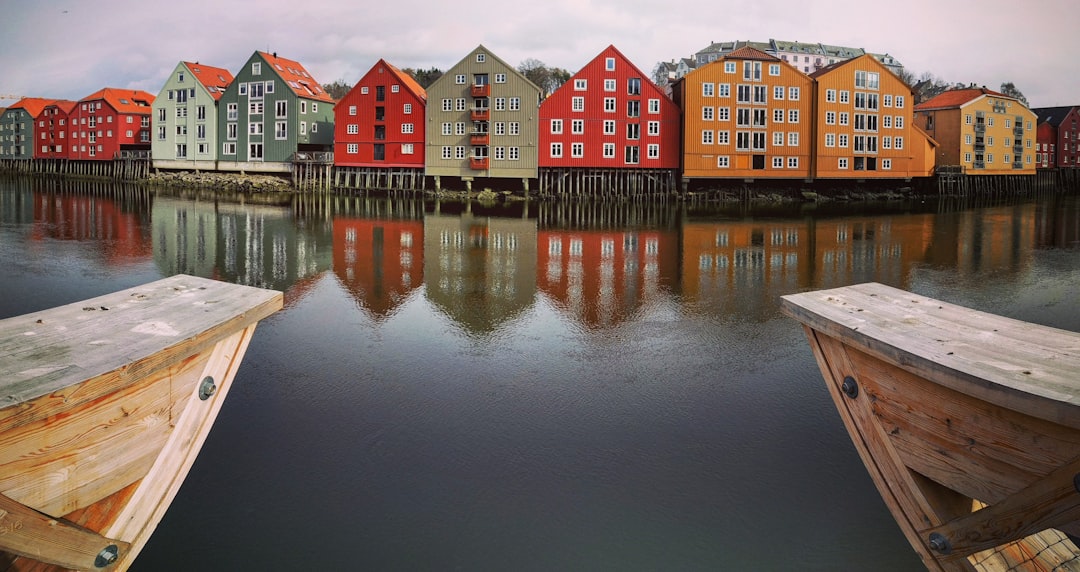In Norway, the phrase “God Helg,” which translates to “Good Weekend,” is more than just a casual greeting; it embodies a cultural ethos that prioritises rest and leisure. This simple expression encapsulates the Norwegian commitment to enjoying life outside of work, reflecting a societal understanding that downtime is essential for overall well-being. The significance of “God Helg” extends beyond mere words; it serves as a reminder to embrace the weekend as a time for relaxation, family bonding, and personal pursuits.
In a country where the workweek can be demanding, this cultural touchstone encourages individuals to disconnect from their professional responsibilities and reconnect with themselves and their loved ones. The importance of “God Helg” is also evident in the way Norwegians plan their weekends. Many people engage in outdoor activities, social gatherings, or simply take time to unwind at home.
This cultural practice fosters a sense of community and belonging, as friends and families come together to share experiences and create lasting memories. By promoting a healthy work-life balance, “God Helg” not only enhances individual happiness but also strengthens social ties, contributing to a more cohesive society. As such, this phrase is a vital part of the Norwegian identity, reminding everyone of the importance of taking time for oneself amidst the hustle and bustle of daily life. Schedule a one-on-one consultation with our relocation specialists to simplify your move to Norway. https://norwayrelocation.no/one-hour-strategy-session/
Summary
- “God Helg” is a crucial aspect of Norwegian culture, emphasising the value of weekends and time off.
- Norway’s unique approach to work-life balance prioritises leisure time and family life, leading to higher overall satisfaction.
- “Friluftsliv” plays a significant role in Norwegian work-life balance, promoting outdoor activities and connection with nature.
- The “Hygge” mentality in Norway focuses on creating a cosy, comfortable atmosphere for relaxation and enjoyment.
- “God Helg” has a positive impact on mental health and wellbeing, contributing to lower stress levels and greater happiness.
Norway’s Unique Approach to Work-Life Balance
Norway is often lauded for its progressive approach to work-life balance, which is deeply ingrained in its societal values. The country has implemented policies that prioritise employee well-being, recognising that a happy workforce is a productive one. For instance, the standard workweek in Norway is typically 37.5 hours, with generous vacation allowances and parental leave policies that are among the most comprehensive in the world.
This commitment to work-life balance is not merely a trend; it reflects a broader understanding that individuals perform better when they are allowed to recharge and pursue personal interests outside of their professional obligations. Moreover, Norwegian employers are increasingly recognising the importance of flexibility in the workplace. Many companies offer options for remote work or flexible hours, allowing employees to tailor their schedules to better fit their personal lives.
This adaptability not only enhances job satisfaction but also fosters loyalty among employees, who feel valued and respected by their employers. As a result, Norway has cultivated a work environment that encourages individuals to thrive both professionally and personally, setting an example for other nations striving to achieve similar levels of balance.
The Role of “Friluftsliv” in Norwegian Work-Life Balance

“Friluftsliv,” which translates to “open-air living,” is a fundamental aspect of Norwegian culture that plays a significant role in promoting work-life balance. This concept encourages individuals to engage with nature and embrace outdoor activities as a means of rejuvenation and relaxation. Whether it’s hiking in the mountains, skiing in the winter, or simply enjoying a picnic in the park, Norwegians are passionate about spending time outdoors.
This connection to nature not only enhances physical health but also contributes to mental well-being, providing an essential counterbalance to the stresses of modern life. The practice of “friluftsliv” is deeply embedded in the Norwegian lifestyle, with many families incorporating outdoor activities into their weekly routines. Weekends often see an influx of people venturing into the wilderness, seeking solace and adventure in equal measure.
This cultural inclination towards outdoor living fosters a sense of community as individuals share experiences and create bonds over shared activities. By prioritising time spent in nature, Norwegians cultivate resilience and mindfulness, reinforcing the idea that true balance comes from harmonising work with leisure and personal fulfilment.
Understanding the Norwegian “Hygge” Mentality
While “hygge” is often associated with Danish culture, its principles resonate strongly within Norway as well. The Norwegian interpretation of “hygge” emphasises comfort, warmth, and togetherness, creating an atmosphere that nurtures well-being and contentment. This mentality encourages individuals to find joy in simple pleasures—whether it’s curling up with a good book by the fireplace or sharing a meal with friends—fostering a sense of belonging and connection.
In a fast-paced world where stress can easily take hold, embracing this mindset allows Norwegians to cultivate happiness in their everyday lives. The “hygge” mentality also extends to how Norwegians approach their homes and social interactions. Creating inviting spaces filled with warmth and light becomes a priority, as does fostering meaningful relationships with family and friends.
This focus on comfort and connection serves as an antidote to the pressures of modern life, reminding individuals to slow down and appreciate the present moment. By integrating “hygge” into their daily routines, Norwegians are able to maintain a sense of balance that enriches both their personal lives and their professional pursuits.
The Impact of “God Helg” on Mental Health and Wellbeing
The cultural significance of “God Helg” extends beyond mere social niceties; it has profound implications for mental health and overall well-being. By encouraging individuals to take time off from work and engage in leisure activities, this phrase promotes a healthier lifestyle that prioritises self-care. Research has shown that regular breaks from work can reduce stress levels, enhance creativity, and improve overall job satisfaction.
In Norway, where “God Helg” is widely embraced, individuals are more likely to experience lower rates of burnout and mental health issues compared to countries with more rigid work cultures. Furthermore, the emphasis on weekends as a time for relaxation fosters an environment where individuals can recharge both physically and mentally. Engaging in hobbies, spending time with loved ones, or simply enjoying solitude allows Norwegians to cultivate resilience against life’s challenges.
This cultural practice not only enhances individual well-being but also contributes to a more positive societal atmosphere where mental health is openly discussed and prioritised. In this way, “God Helg” serves as a vital component of Norway’s holistic approach to health and happiness.
How Norwegian Employers Support Work-Life Balance

Norwegian employers play a crucial role in fostering work-life balance through various supportive policies and practices. Many companies actively promote flexible working arrangements that allow employees to manage their time effectively. This flexibility can take many forms, from remote working options to adjustable hours that accommodate personal commitments.
By empowering employees to take control of their schedules, employers demonstrate trust and respect for their workforce, leading to increased job satisfaction and productivity. In addition to flexible working arrangements, Norwegian employers often provide generous benefits that support employees’ well-being. These may include extended parental leave, wellness programmes, and access to mental health resources.
Such initiatives reflect an understanding that employees are more than just workers; they are individuals with diverse needs and responsibilities outside of the workplace. By prioritising employee well-being through supportive policies, Norwegian employers contribute significantly to creating a culture where work-life balance is not just encouraged but actively facilitated.
The Influence of “God Helg” on Family Life in Norway
The phrase “God Helg” resonates deeply within family life in Norway, serving as a catalyst for quality time spent together. Weekends are often viewed as sacred moments for families to reconnect after busy workweeks filled with commitments and responsibilities. This cultural emphasis on family bonding encourages Norwegians to engage in shared activities—be it hiking in nature, playing games at home, or enjoying leisurely meals together—strengthening familial ties and creating cherished memories.
Moreover, the practice of prioritising weekends for family time fosters open communication and emotional support among family members. In an environment where individuals feel valued and connected, children grow up understanding the importance of balance between work and leisure. This cultural norm instils values that extend beyond childhood into adulthood, shaping future generations who appreciate the significance of nurturing relationships while pursuing personal aspirations.
Balancing Work and Leisure: Lessons from the Norwegian Model
The Norwegian model of work-life balance offers valuable lessons for individuals seeking harmony between their professional and personal lives. One key takeaway is the importance of setting boundaries between work and leisure time. By clearly delineating when work ends and personal time begins—often signified by the phrase “God Helg”—individuals can cultivate healthier habits that promote overall well-being.
This practice encourages people to fully engage in leisure activities without the distractions of work-related stressors. Another lesson from Norway’s approach is the value placed on community engagement and social connections. By prioritising relationships with family and friends during weekends, individuals can foster a support network that enhances their emotional resilience.
This sense of belonging not only enriches personal lives but also contributes positively to professional environments by creating a culture of collaboration and mutual support.
The Economic Benefits of Prioritising Work-Life Balance in Norway
Norway’s commitment to work-life balance yields significant economic benefits that extend beyond individual well-being. Research indicates that companies that prioritise employee satisfaction through flexible working arrangements experience lower turnover rates and higher productivity levels. When employees feel valued and supported in their personal lives, they are more likely to be engaged at work, leading to improved performance outcomes for organisations.
Additionally, by fostering a culture that values mental health and well-being, Norway reduces healthcare costs associated with stress-related illnesses and burnout. A healthier workforce translates into lower absenteeism rates and increased efficiency across various sectors. Ultimately, prioritising work-life balance not only enhances individual quality of life but also contributes positively to the overall economy by creating a more resilient and productive workforce.
Embracing the “God Helg” Mindset: Tips for Finding Balance in Your Own Life
Embracing the “God Helg” mindset can be transformative for individuals seeking greater balance in their lives. One practical tip is to establish clear boundaries between work and personal time—designating specific hours for professional responsibilities while reserving weekends for relaxation and leisure activities. This practice allows individuals to fully engage in their personal lives without the distractions of work-related stressors.
Another valuable strategy is to prioritise self-care during weekends by engaging in activities that bring joy and fulfilment—whether it’s spending time outdoors, pursuing hobbies, or connecting with loved ones. By intentionally carving out time for these pursuits, individuals can cultivate resilience against life’s challenges while enhancing their overall well-being.
Exploring the Global Impact of Norway’s Work-Life Balance Philosophy
Norway’s approach to work-life balance has garnered international attention as countries around the world seek to emulate its success. The principles underlying this philosophy—such as flexibility in the workplace, prioritisation of mental health, and emphasis on community engagement—resonate across cultures seeking healthier lifestyles for their citizens. As more nations recognise the importance of fostering environments that support employee well-being, Norway’s model serves as an inspiring example of how prioritising balance can lead to happier individuals and stronger societies.
In conclusion, embracing concepts like “God Helg,” “friluftsliv,” and “hygge” can significantly enhance one’s quality of life while promoting mental health and well-being. For those considering relocation or seeking guidance on integrating these values into their lives in Norway, the Norway Relocation Group offers invaluable support throughout this journey. Additionally, learning the language can further enrich your experience; enrolling in Norwegian courses at the NLS Norwegian Language School in Oslo will not only help you communicate effectively but also deepen your understanding of these cultural nuances that define life in Norway.
Register for a Norwegian class at the NLS Norwegian Language School now!

